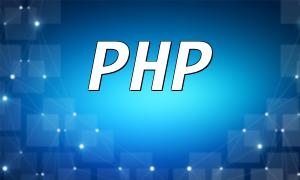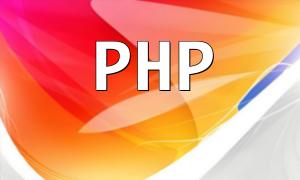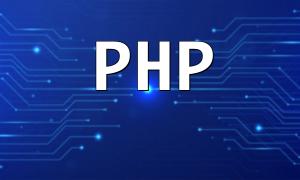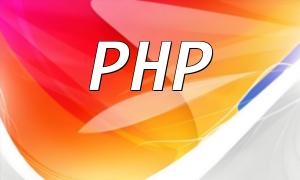PHP, as a popular server-side scripting language, is widely used in web development. As internet applications evolve and the demand for efficient functionality grows, building high-performance features in PHP has become a key focus for developers. This article explores multiple aspects of PHP development optimization to improve performance and user experience.
Choosing the right development framework is crucial in PHP development. A good framework can provide developers with common features and tools, significantly improving development efficiency and feature quality. Popular PHP frameworks such as Laravel, Symfony, and Yii each have their own strengths. Developers should select the appropriate framework based on the specific project requirements and team expertise for faster and more efficient development.
Following consistent coding standards is vital in PHP development. A good coding style improves code readability, maintainability, and promotes team collaboration and sustainable development. In PHP, common coding standards include PSR-1, PSR-2, and PSR-4, which help standardize code. Tools like PHP_CodeSniffer can be used to ensure code quality and consistency.
Database queries are often a bottleneck in PHP application performance. To enhance query efficiency, developers should avoid using SELECT *, unnecessary JOIN operations, and queries without indexes. When necessary, database caching and query optimization techniques can be used. Additionally, using ORM frameworks simplifies database operations, and combining them with caching mechanisms can further boost query performance.
Caching is an effective technique for improving PHP performance. Common caching tools such as Memcached and Redis can be selected based on specific business needs and project scenarios to reduce database load and improve response times. It’s important to consider caching strategies, cache invalidation, and consistency when implementing caching solutions.
In PHP development, time-consuming tasks like file uploads, large data processing, and email sending can be optimized through asynchronous processing. By using message queues or asynchronous task managers, developers can offload these tasks from the main thread, avoiding response blocking and improving system throughput. When implementing asynchronous processing, key considerations such as task management, error handling, and retry mechanisms should be addressed.
Security is a top priority in PHP development. Developers should focus on securing user inputs, database operations, and file uploads through measures such as data filtering, parameter binding, SQL injection prevention, and XSS attack mitigation. Proper exception handling is equally important—catching exceptions and logging errors helps enhance system robustness, preventing crashes and data loss.
In addition to backend optimization, frontend performance also plays a significant role in user experience. During PHP development, optimizing frontend resources like compression, merging, asynchronous loading, and image optimization can significantly improve page load speed. Leveraging modern frontend tools and techniques, developers can manage and optimize these resources effectively.
By selecting the right development framework, adhering to coding standards, optimizing database queries, using caching technologies, employing asynchronous processing, strengthening security, and optimizing frontend performance, developers can build efficient features in PHP development. These practices will help improve program performance, system stability, and ultimately enhance the user experience.










